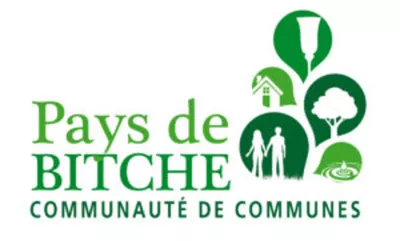General information
RDP Priority
- P6. Social inclusion and local development
RDP Focus Area
- 6B: Local development
RDP Measure
- M07: Basic services & village renewal
Beneficiary type
- Local / regional authority
Summary
The Joseph Schaefer Library opened in 1999, in the French village of Bitche located in the Grand Est region. After 20 years of activity, the library became unsuitable to use due to its lack of internet connection and ageing infrastructure. In 2017, the municipality and public authorities applied for CAP funding to rehabilitate the library, with the objective of stimulating cultural and social life, and facilitating the digital transition.
Results
- Since 2020, the multimedia library has hosted around 380 activities. There were also 1 637 new subscribers in 2022.
- The library benefits from four computers and a ‘cyber area’ with access to digital resources or video games.
- More than 100 000 books, movies, newspapers, and training programmes are available online for free to the library’s members.
Resources
Documents
Context
The Joseph Schaefer Library opened in 1999, in the French village of Bitche located in the Grand Est region. It is established in one of the town’s oldest buildings: an old military hospital built during the 18th century. After 20 years, with no internet access and ageing infrastructure, the place became unsuitable for the area. Facing this reality, the municipality and local authorities engaged in a project to rehabilitate the library, expanding its services and enabling better access to its resources.
The idea behind the ‘rehabilitation’ project was to create a place that could welcome local inhabitants, associations and businesses, and provide a service to all sections of society, enabling conviviality and exchange. The multimedia library was designed to host a wide range of cultural and social activities. It was also a way to enable the whole area to take part in the digital transition with the installation of new equipment, such as computers, digital notebooks, a video-games area and the launch of a support programme to help everyone (the elderly as well as the young) to access and make use of these devices. In 2022, it welcomed around 1 637 people and hosted several cultural events (digital training workshops, conferences, theatre, etc.).
Objectives
The project aimed to improve access to digital services and cultural activities; to support local life and offer a point of intergenerational contact and exchange.
Activities
Project activities included:
- Rehabilitating the multimedia library - the EAFRD contributed to the improvement of the library building as well as the interior furniture and IT equipment. This helped to modernise the space and enabled the offering of new activities.
- Developing digital activities - thanks to the new IT equipment, the library could welcome several training sessions organised by institutional and private stakeholders. In partnership with a county program dedicated to digital, the library is now able to offer access to digital newspapers, self-training tools, movies, e-books, etc. All of these features are included in the subscription to the multimedia library.
- Developing cultural activities - the library hosts several cultural activities throughout the year. They work in partnership with a local adult education centre (‘Université Populaire’) to offer courses in literature, drawing and modern languages. The library also collaborates with sociocultural associations such as 'Loisir Jeunesse', a youth association with whom they have set up a school holiday programme for children.
Main results
- Library attendance: since its rehabilitation in 2020, the multimedia library has become increasingly popular, with 1 637 new subscribers in 2022.
- Digital: the library benefits from four computers and a ‘cyber area’ with access to digital resources or video games. More than 100 000 books, movies, newspapers and training programmes are available for free online to the library’s members.
- Activities: since 2020, the multimedia library has hosted around 380 activities, such as exhibitions, cultural performances, and workshops.
Key lessons
- The CAP can be used to support rural quality of life in different ways and this contributes to the EU's Long-term Vision for Rural Areas.
- Work required to build an EAFRD project like this can be extensive and requires carefully coordinated planning, including accurate forecasting and understanding of risk.
- Digitalisation opportunities continue to expand in rural France and offer many new development possibilities.
“We designed the library as a living space where people could gather, exchange and learn. It makes it easier for people to engage in the digital transition and to discover new activities.”
Contacts
Marie Baerenzung


